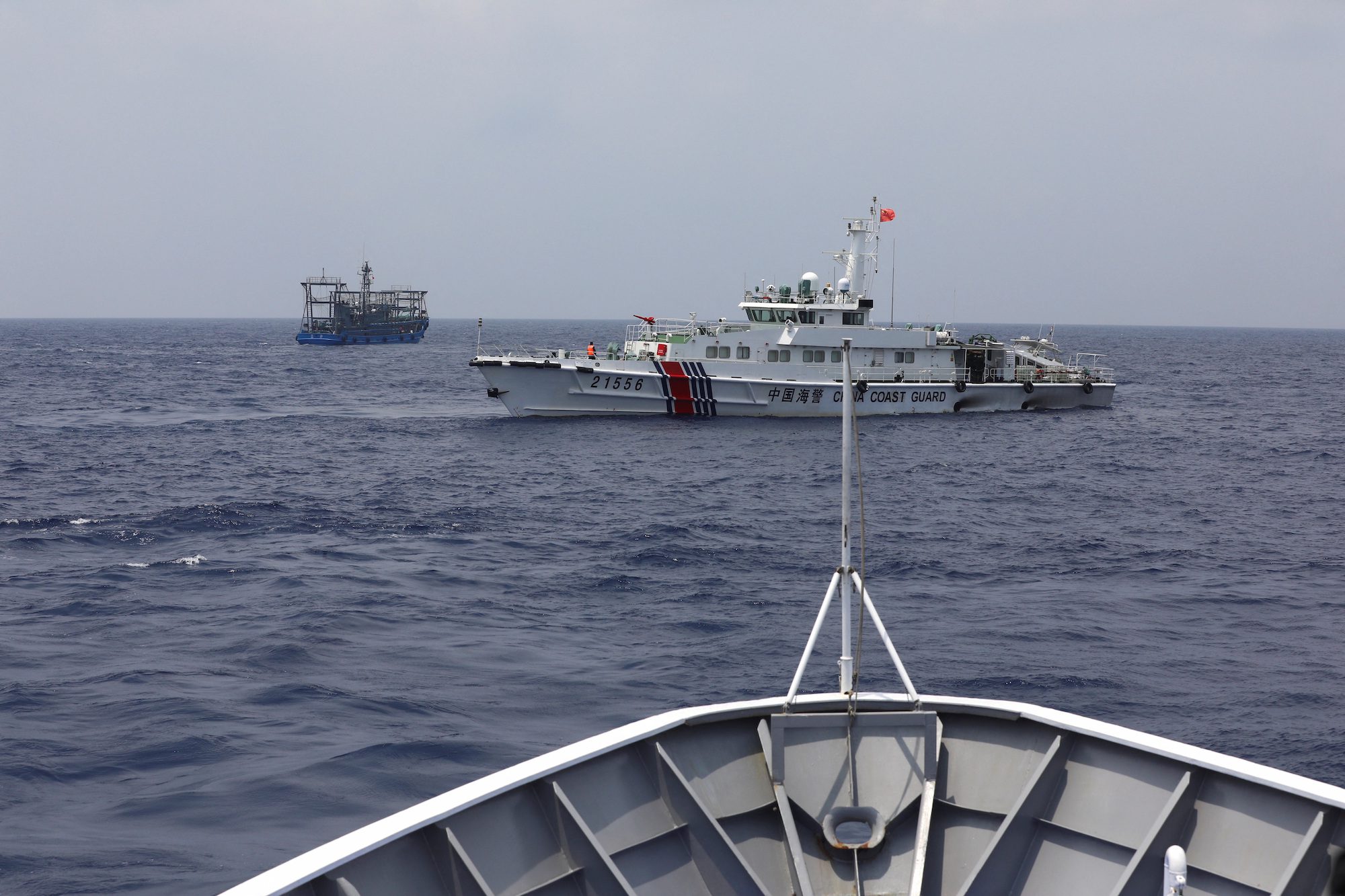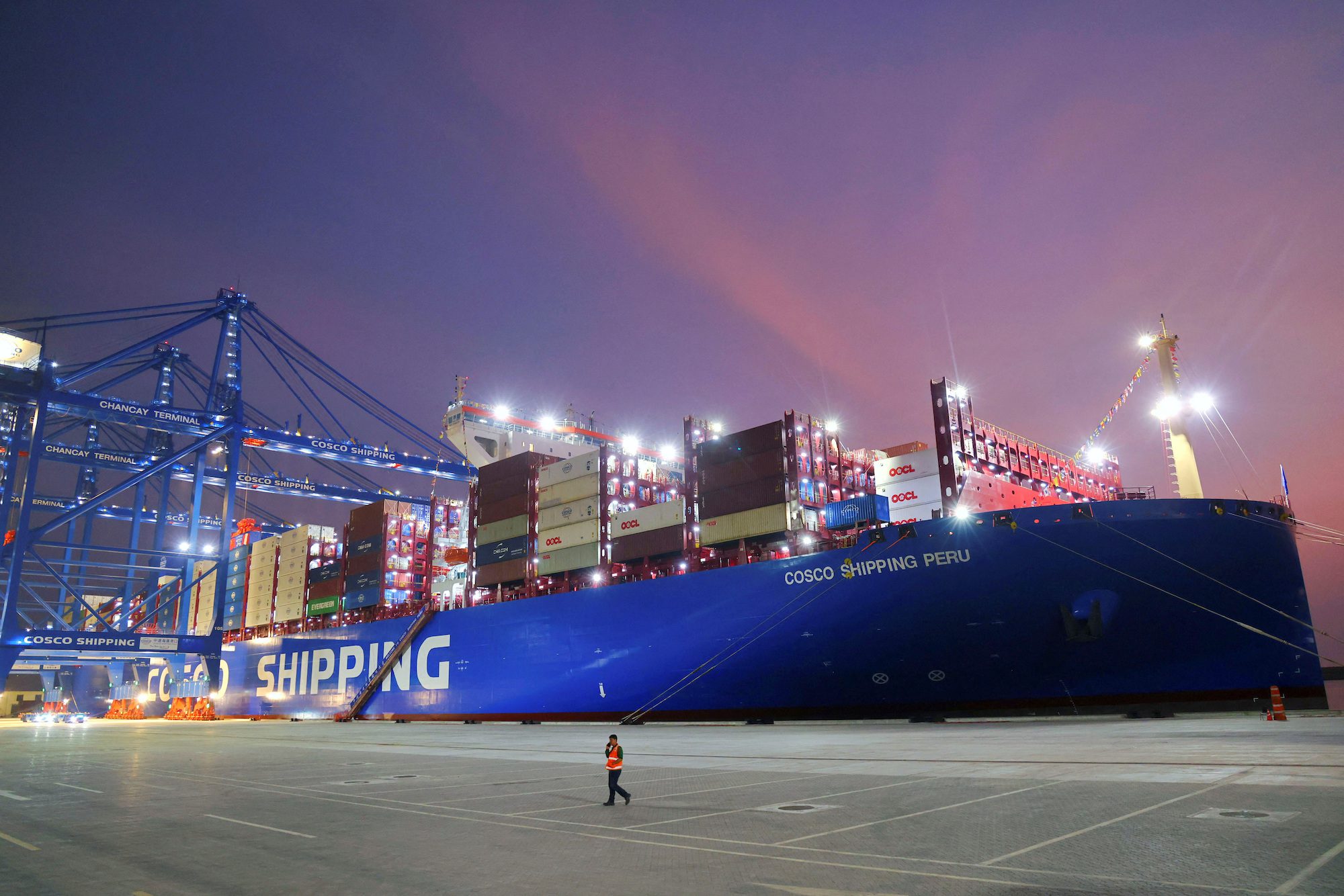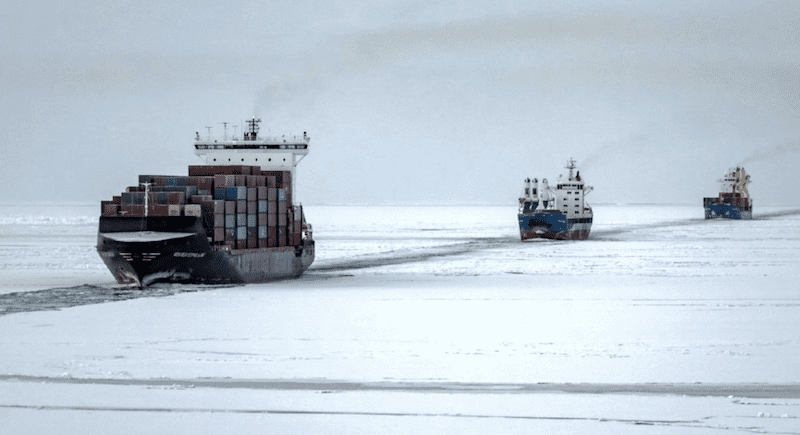NEAR THE SECOND THOMAS SHOAL, South China Sea, Oct 6 (Reuters) – The crew of the Philippine coastguard boat watch anxiously as an imposing Chinese vessel draws near and cuts off its path, coming within a meter of collision in a vast stretch of open water in the South China Sea.
The captain of the BRP Sindangan shuts off the engine and activates the reverse throttle. China’s coastguard issues a warning via megaphone to leave as the Filipino crew watch closely on a radar that shows two vessels side by side.
“In accordance with international and Philippine national laws we are proceeding,” a crew member responds.
“Request to stay clear from our passage.”
Tense encounters like this, about 100 miles (185 km) off the Philippines and witnessed by a Reuters journalist, are becoming more frequent in Asia’s most contested waters as China presses its claim of ownership over almost the entire South China Sea.
China rules the waves here, and the Philippine mission is symbolic of a wider battle between Beijing and neighbors determined to uphold sovereign rights in their exclusive economic zones (EEZ).
The Philippine coastguard ship is escorting smaller boats to the Second Thomas Shoal that carry supplies to a handful of troops posted to a makeshift garrison aboard the Sierra Madre, a World War Two navy ship that was intentionally grounded on the reef a quarter of a century ago.
STRATEGIC BATTLEGROUND
Their constant presence aboard the rusty ship has irked China and turned the Second Thomas Shoal into a strategic battleground, with Beijing deploying its more modern coastguard ships and clusters of fishing boats as far as 620 miles (1,150 km) from the Chinese coast.
Just 800 meters away, a grey navy ship starts to follow the Sindangan, joining the four Chinese coastguard vessels and five other boats suspected by the Philippines of being militia.
The Sindangan hangs back as the supply boats advance to complete the remaining nine miles (17 km) to reach the troops aboard the Sierra Madre.
China condemned the resupply mission, saying Philippine vessels had “intruded” in its waters in the Spratly Islands without its permission. It has previously ordered the Philippines to tow the grounded ship away from the atoll.
The stakes are high if this brinkmanship turns to miscalculation in the South China Sea.
Relations between the Philippines and China have further soured this year at a time of strengthened military engagement between Manila and Washington that Beijing says risks stoking regional tensions.
The Philippines and the United States have a Mutual Defense Treaty, and the Pentagon in May made clear it would protect the Philippines if its coastguard came under attack “anywhere in the South China Sea.”
Jay Tarriela of the Philippine coastguard said it was his country’s right to operate freely in its EEZ and accused China of violating international law.
“They have carried out dangerous maneuvers and blocking operations to prevent our routine operations in providing supplies for our military troops,” he told reporters.
(Reporting by Adrian Portugal; Writing by Karen Lema; Editing by Martin Petty)
(c) Copyright Thomson Reuters 2023.
Editorial Standards · Corrections · About gCaptain
This article contains reporting from Reuters, published under license.

 Join The Club
Join The Club












